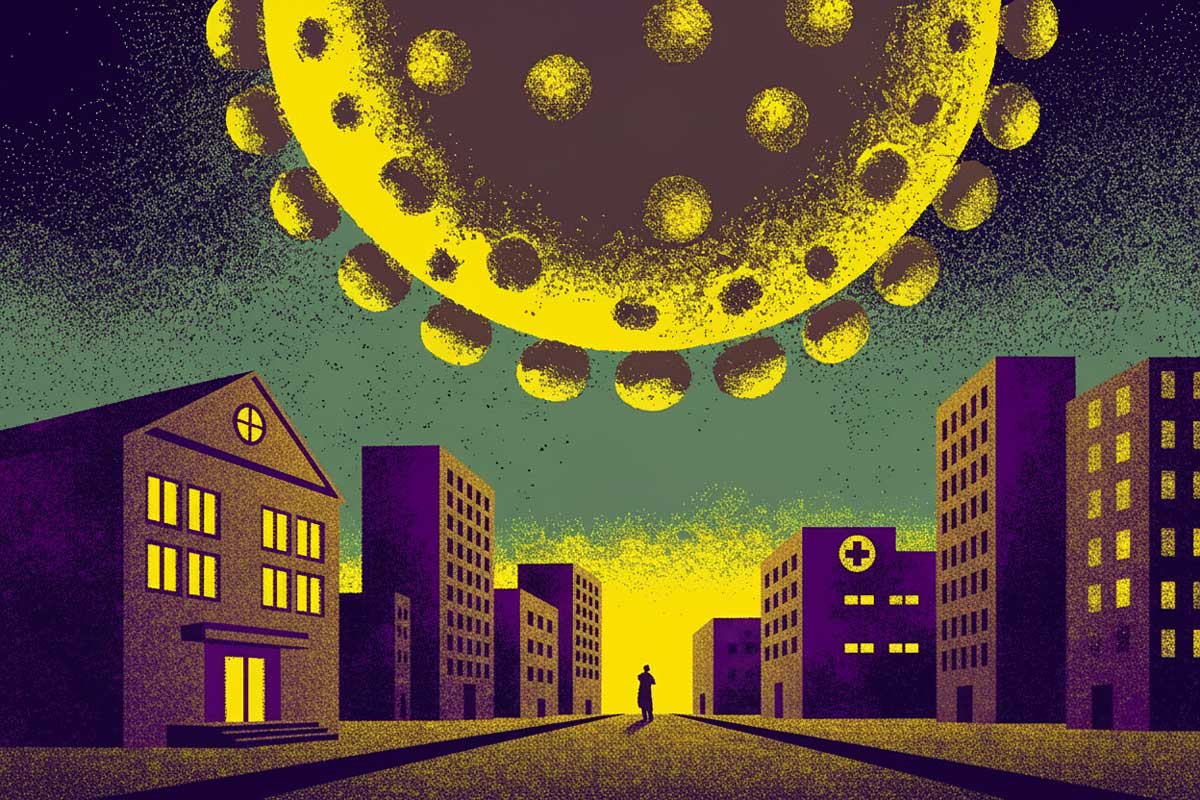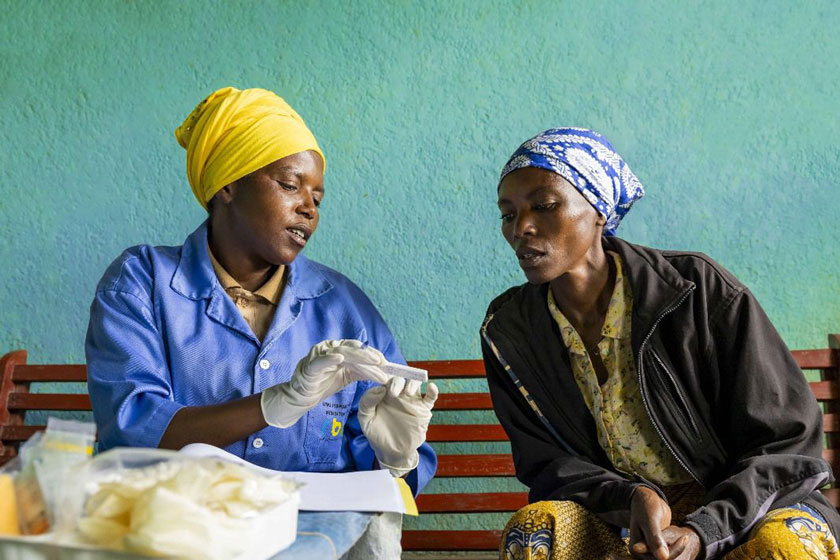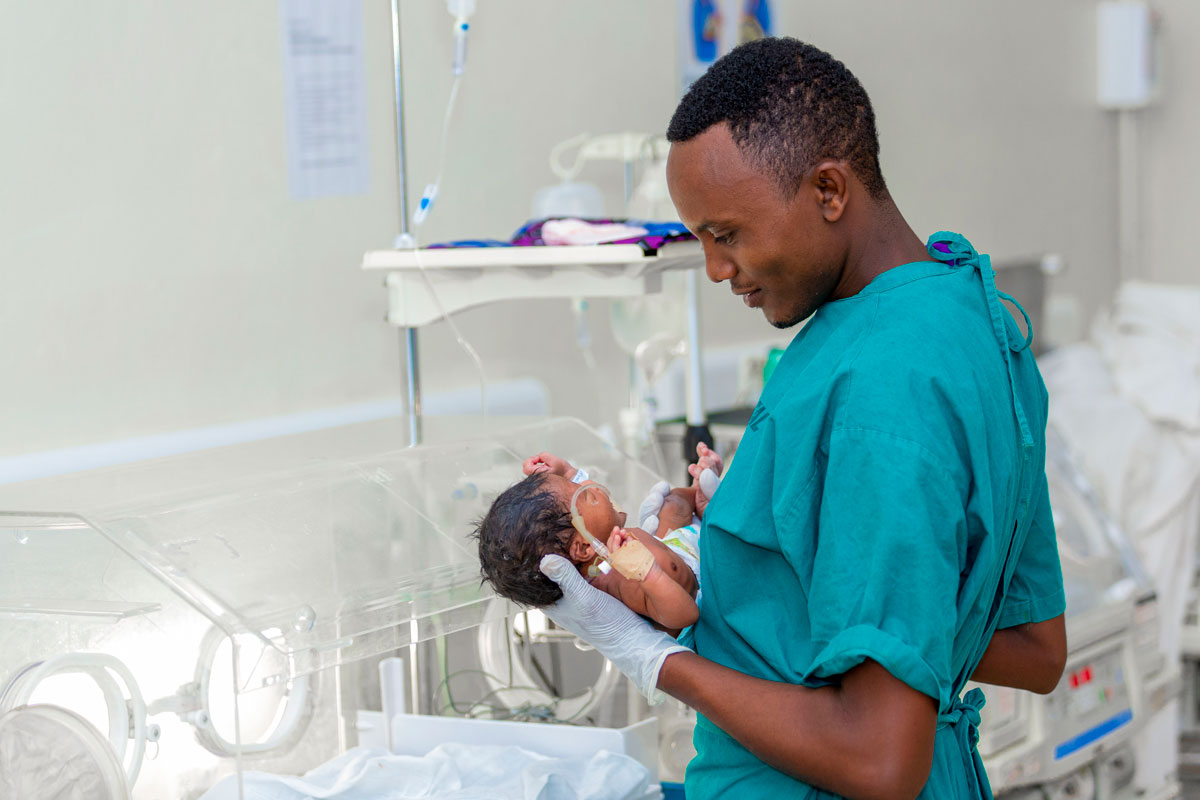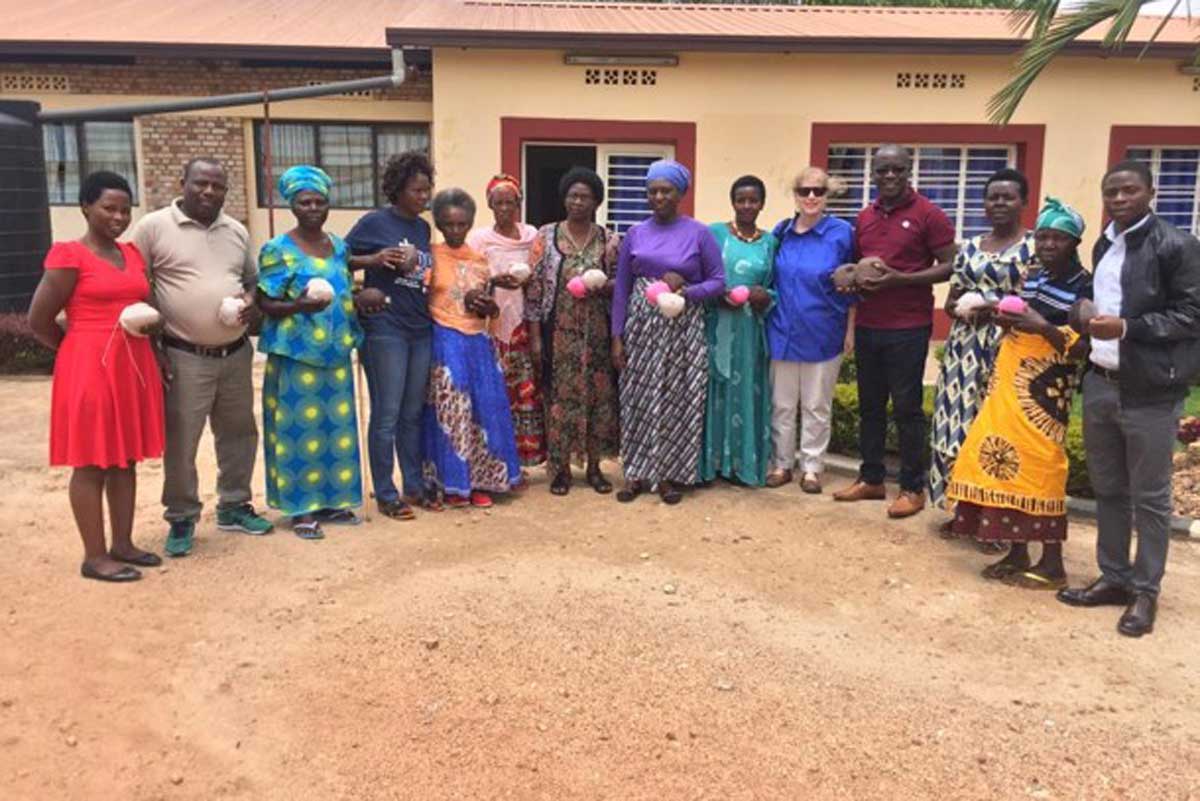Protected by Gavi vaccines a quarter century ago, two young Rwandan women fix their gaze on a safer future
As Gavi turns 25, the first cohort of “Gavi babies” are coming of age, and helping to shape their communities and their countries.
- 30 June 2025
- 5 min read
- by Hudson Kuteesa
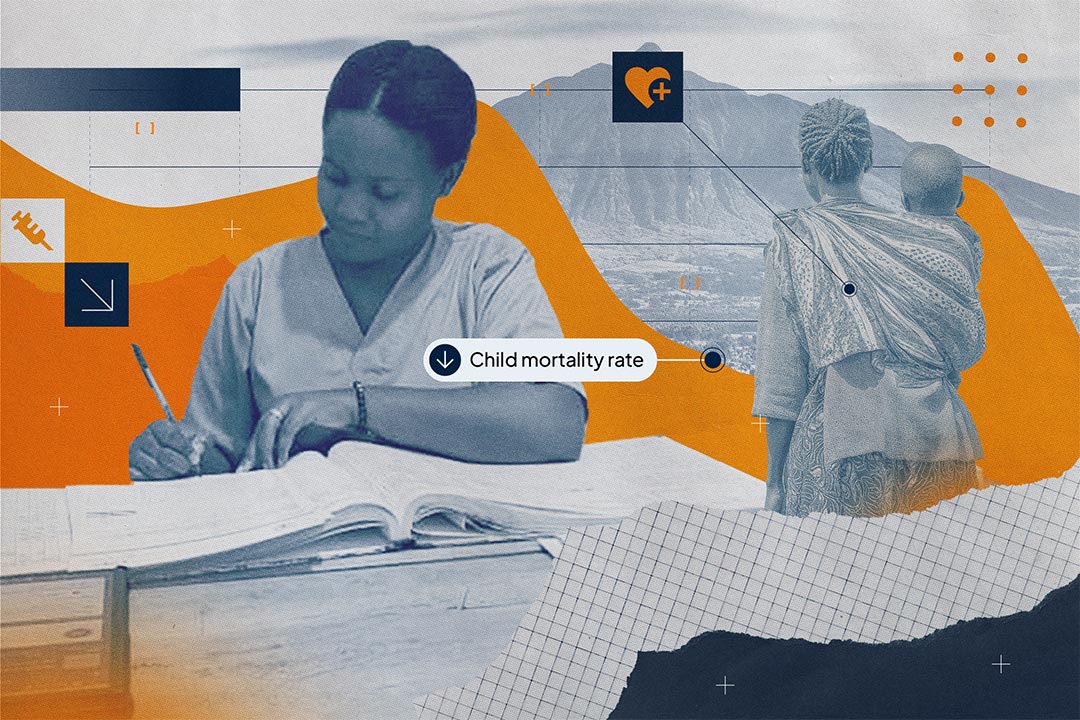
When Marie Germaine Dusingize was born 25 years ago, she was one of the early beneficiaries of Rwanda’s expanding vaccination programme. Today, she is a nurse at a health facility in Kigali’s Kinyinya suburb, serving pregnant women and infants, offering them the same lifesaving vaccines she once received.
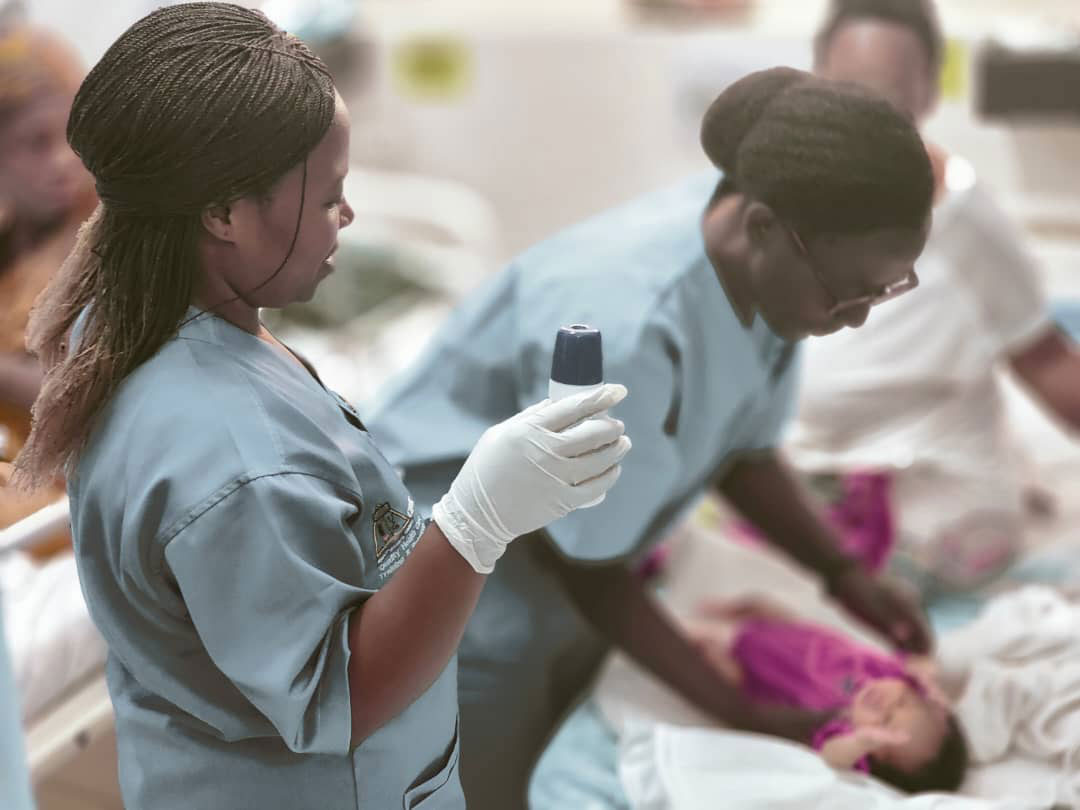
Credit: CHUK
The youngest in a family of seven from Nyamasheke, a far-west district, Dusingize was born the year before Gavi, the Vaccine Alliance began to support Rwanda’s health system. The Vaccine Alliance had been established with the aim of expanding access to established vaccines, and to introduce new and underused vaccines in this and other lower-income countries. In Rwanda, change happened quickly: coverage with the third dose of the basic diphtheria, pertussis and tetanus-containing (DTP3) vaccine, conventionally used as a proxy for immunisation rates in general, rose from 77% in 2001 to 99% in 2006.
In a quarter century of partnership with Gavi, Rwanda has also introduced several new vaccines to its public portfolio, including the pentavalent jab (functionally an upgrade on the DTP combo jab, adding hepatitis B) in 2002, the pneumonia- and meningitis-blocking pneumococcal conjugate vaccine (PCV) in 2009, the cervical cancer-preventing human papillomavirus vaccine in 2011, the rotavirus jab in 2012, and the measles and rubella combination vaccine in 2013. In significant part due to rising immune protection in the paediatric population, under-five mortality rates have fallen from 185 deaths per 1,000 live births in 2000, to 40 deaths per 1,000 births as of 2023.
Hassan Sibomana, Director of Vaccination Programmes Unit at Rwanda Biomedical Centre (RBC), says Gavi, the Vaccine Alliance has played a vital role in strengthening Rwanda’s immunisation programme not only by supporting the introduction of new and underused vaccines, but also by investing in training and cold chain infrastructure.
“Many children used to suffer and die from pneumonia in the past, but since the introduction of new vaccines, such diseases have become rare. In my lifetime, I have never seen anyone suffering from diseases like tetanus. They are almost unheard of,” Dusingize told VaccinesWork.
Making the future
Dusingize’s passion for future in medicine started when she was just a lower primary school student, picking up inspiration from her eldest sister. “I was a very young girl when my sister was finishing secondary school, after which she pursued nursing. I knew I wanted to be like her,” she recalls.
Having been told that she had to be good at science subjects in order to go into the healthcare profession, Dusingize focused on physics, chemistry and biology in secondary school, going on to Kibogora Polytechnic to work towards her nursing degree. She spent four years at the institution, combining classroom learning with various internships at hospitals and health centres.
Have you read?
Though she officially graduated in 2024, she says it feels like she has already spent nearly three years treating patients as an intern. She is now a fully-fledged nurse, working in different departments at Kinyinya Health Centre – including one that provides vaccination to infants.
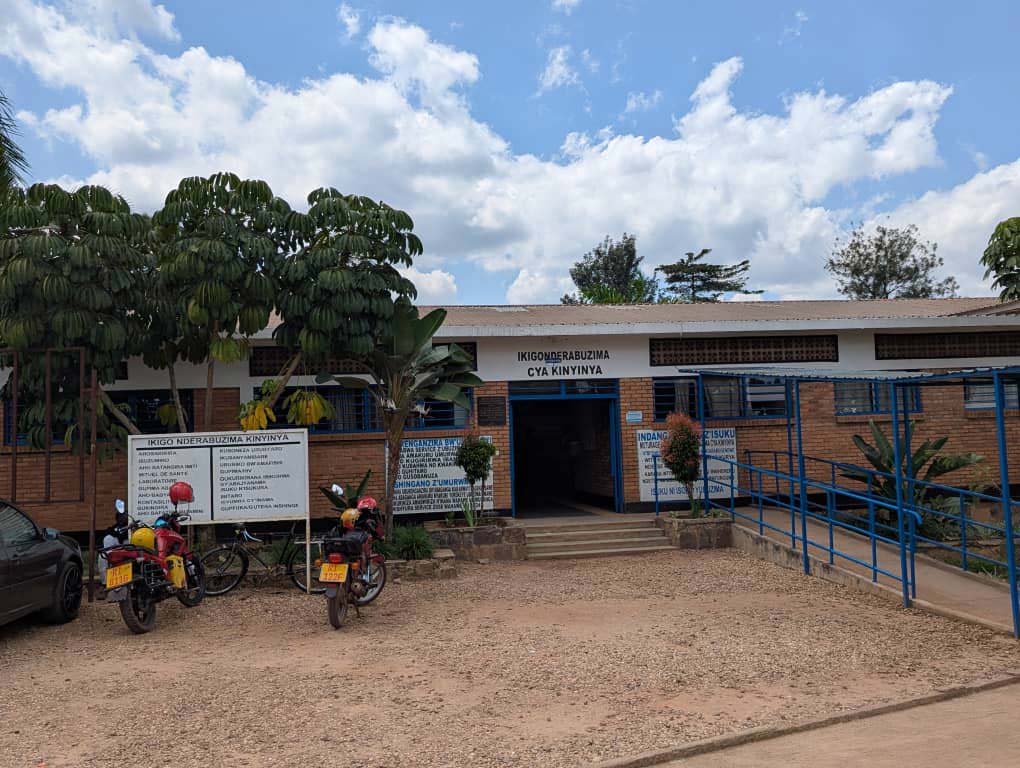
Credit: Hudson Kuteesa
Seeing the suffering of patients on the wards only makes the importance of preventive medicine clearer to her, she says. “Sometimes you don’t know what illness they have, but being vaccinated makes you confident that you will not get infected by [at least certain] diseases,” she says.
“Things have changed – it’s easier”
The young nurse says she gets her motivation from her patients – whether she is treating an illness or giving a vaccine to an infant.
“When a patient comes in feeling unwell, receives the care they need and leaves, saying, ‘Thank you so much, God bless you,’ that gives me the strength to keep working. It is such a great motivation for us.”
And indeed, her efforts and those of her colleagues don’t go unnoticed. Delphine Nyiramana, a 25-year-old mother of two from Kigali, is one of many who are grateful for the increased accessibility and quality of healthcare services.
Her children, a two-year-old girl and a one-and-a-half-month-old boy, have both been vaccinated, just like she was as a child – though Nyiramana’s experience growing up was a bit different.
Born in Gisagara, a rural district in the Southern Province, Nyiramana says that access to healthcare was limited during her childhood due to lack of facilities and personnel. “In the past, you could spend many hours at a health centre, waiting for services. Today, things have changed. There are more medics, and it’s easier,” she says.
She says she finds it gratifying that the vaccines are given free of charge, because some people would fail to access them due to financial challenges.
“If vaccines were priced, say at 20,000 Rwandan francs [US$ 13.80], it would be difficult for some families to afford them. Giving them for free allows every parent, whether rich or poor, to access such an essential service,” she says.
The cost of poverty is familiar to Nyiramana, who didn’t complete school due to her family’s financial constraints. Still – or perhaps as a consequence of her own exclusion – her own dream is to open a school for young learners one day. “Every time I am with children, I feel so happy,” she says.
Shared futures
In the meantime, she aims to guarantee her own children a very good education, in a good private school. She wants them to become multilingual to gain advantages for their future careers or businesses.
“Knowing many languages is a good thing. I want my children to speak multiple languages, so they can understand and communicate with many clients,” she says.
Her two-year-old daughter is already offering up signs of uncommon intelligence. She describes her as a girl with a quick and curious mind, easily picking up new things. “She is very curious and playful. She is happy too, especially after eating well,” she says.
Dusingize, the nurse, is likewise parlaying her own energies into building a stronger, safer collective future. She says she hopes to make a lasting impact by helping ensure that people receive quality and sustainable healthcare services.
“I want to play a role in helping citizens not only access vaccines but also understand the importance of all the health services available to them,” she says.
More from Hudson Kuteesa
Recommended for you


